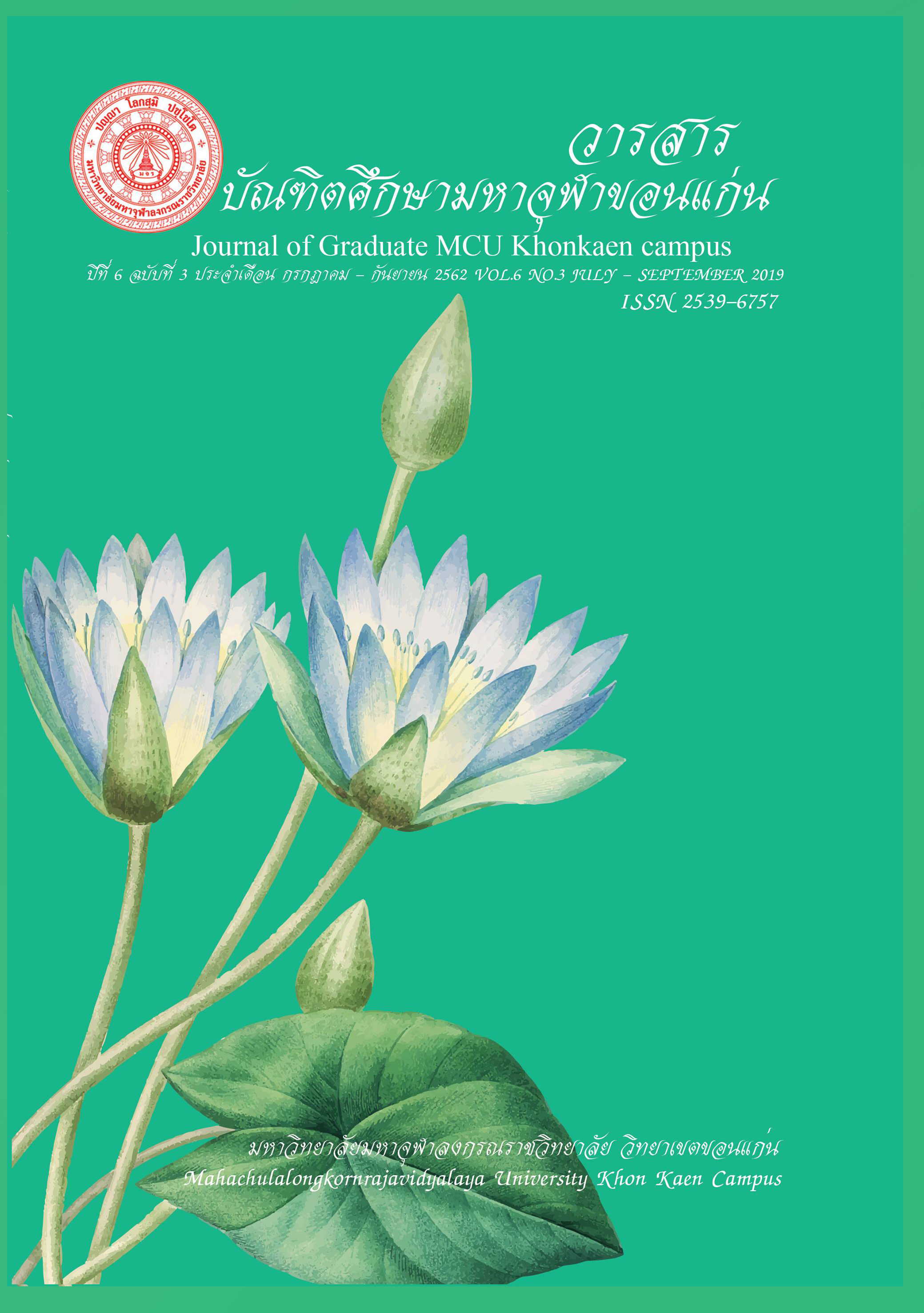The Model for Student’s Desired Characteristics Development Following in Private Schools in Chiyaphum
Main Article Content
Abstract
This is a research and development aiming to: 1) investigate the current state of the student’s desired characteristics following in private schools under the Office of the Private Education Commission (OPEC); 2) create the model for the student’s desired characteristics development; and 3) examine the outcome after trying out the model. The research method consisted of 3 phases for each of three sample groups; namely, Phase 1: 6 school director, 15 teachers; Phase 2: 7 experts to draft the model, 7 evaluators to verify the model’s suitability; and Phase 3: 200 students and 50 teachers for the activity follow-up and evaluation after trying out the model with the students in private schools in Chiyaphum province. The statistics for data analysis were percentage, mean, and standard deviation
The outcome suggested that the current state of the student’s desired characteristics was concerned with 8 issues including: 1: Faith in country, Religion, and Monarchy or good citizenship; 2: Honest; 3: Discipline; 4: Knowledge seeking; 5: Sufficient living; 6: Work-oriented; 7: Love for Thainess; and 8: Public mind. These 8 characteristics were presented at a moderate level.
In term of the activity for the student’s desired characteristics development following in private schools under the office of the Private Education Commission, it was found that the experts agreed that those 19 activities were most appropriate and rated with a highest score in terms of the objective, goal, key indicator, activity type/working procedure and benefits.
Before joining the activities, the student’s characteristics were performed at a moderate level (=2.72, S.D. = 0.90) but after doing the activities, their characteristics were raised to a good level for all 8 issues (= 4.49, S.D. = 0.64). This confirms the students have developed their desired characteristics after joining the activities and all of their scores were different and statistically significant (.05).
Article Details
References
Mathayomsuksa Schools in Department of General Education in Tak
Province. Thesis in Master of Educational Administration, Graduate
School, KampangphetRajabhat University.
Khammanee, T. (2017).Compilation of Academic Articles in Quality
Enhancement Strategies for Schools, Teachers, and Learning Management.
Bangkok: Faculty of Education, Chulalongkorn University.
Ladee, S. (2000).“The Study of Sufficient Economy Project in Prathomsuksa
Schools in UdonthaniPrimaty Educational Service Area”.Thesis in Master
of Educational Administration.KhonKaen : Graduate School KhonKaen
University.
Ministry of Education.(2008). Basic Educational Curriculum. Bangkok:
Kurusapa printing Ladprao.
________. (2007). Handbook of Basic Management for Independent School.
Bangkok: Kurusapa printing Ladprao.
Phonnata, S. (2003). Development of Moral and Ethics in Mathayomsuksa
Students in Ban Non Kho School, KamMaung District, Educational
Service Area of Kalasin 3. Independent Study in Education.
Mahasarakham :Mahasarakham University.
Rapeenipon, D. (2003). Factors Influencing Vocational Students’ Morality in
Department of Vocational Education in Phitsanulok Province.Thesis in
Master of Education, Rajabhatpibulsongkram Institute.
SirikulDamrongmanee. (2546). SUFFICIENCY ECONOMY AND THE
BUDDHIST WAY OF LIFE.Bangkok :Chulalongkorn University.
Taesoongnern, A. (2004). Development of Moral and Ethics of Cleanness and
Economy of TaladsaiPittayakom Students in Chumpaung District,
Nakornrachasima Province.Thesis in Educational Administration,
Graduate School, Mahasarakham University.
Tianpermpool, N. (2003). Fostering Moral and Ethics in Police Cadet.
Rajabhatnakornpathom Institute.

